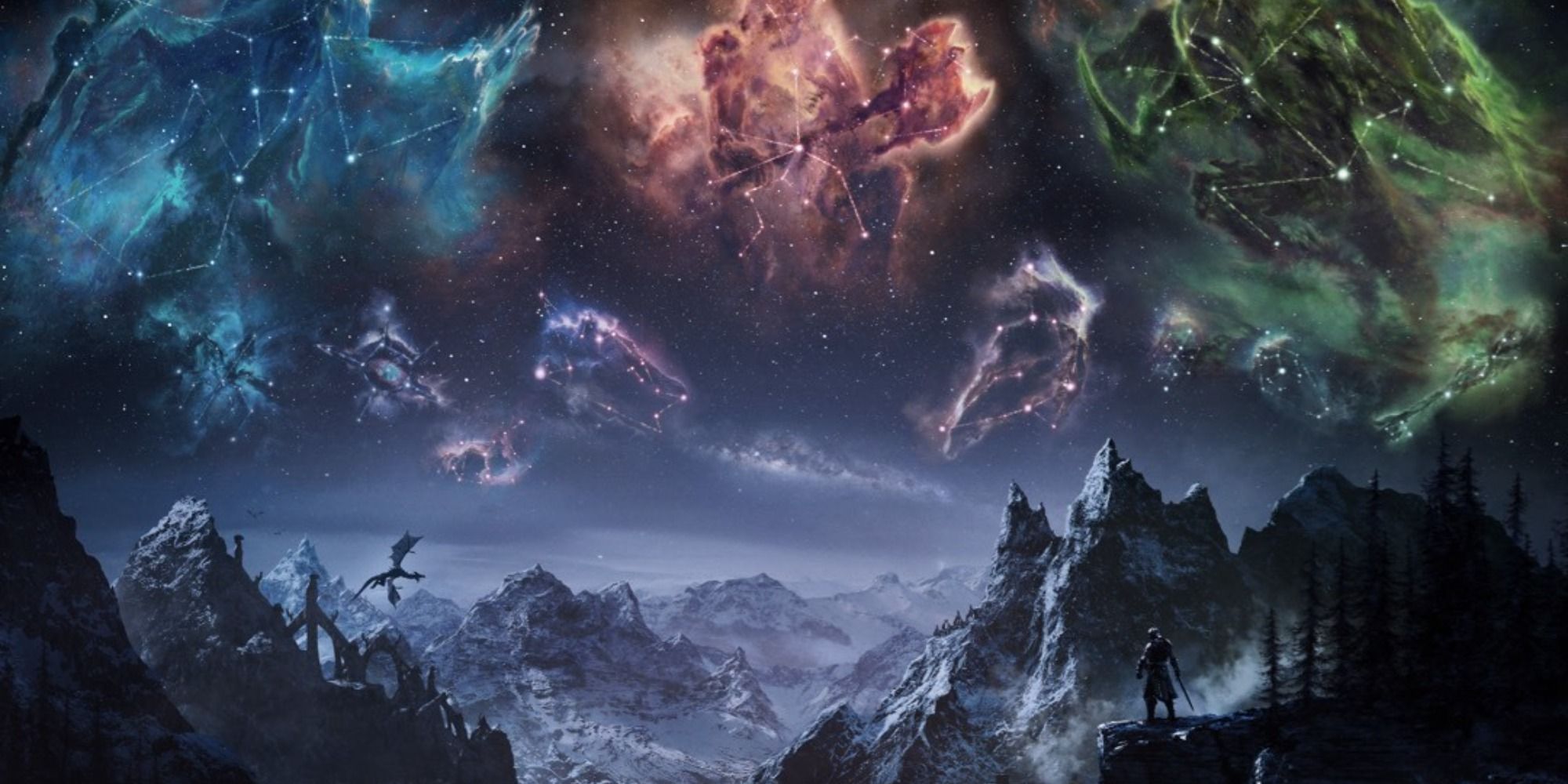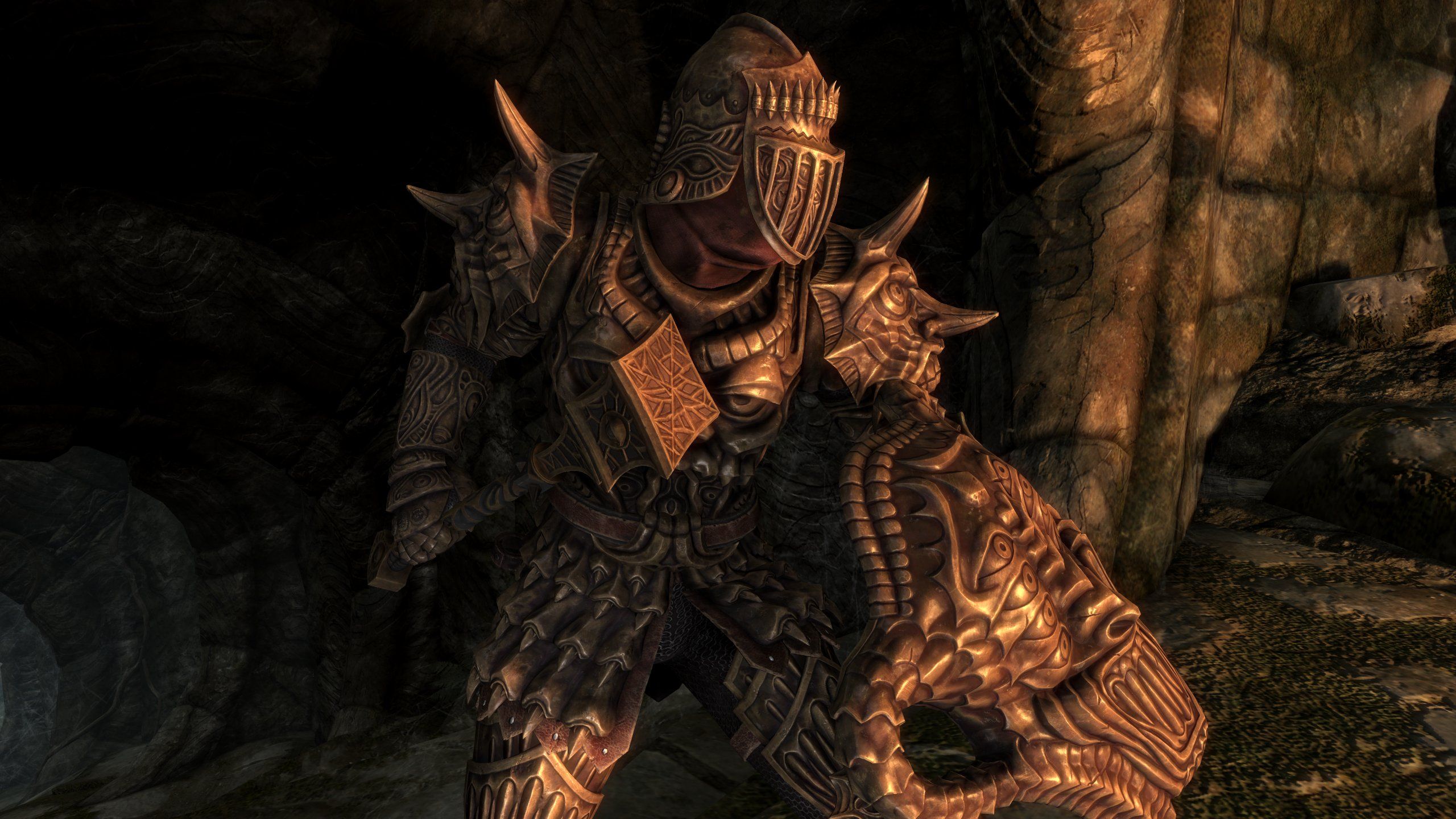Today marks the tenth anniversary of Skyrim, Bethesda’s behemoth fantasy RPG that changed the shape of game development forever. Except… did it really? Modern issues like bloat and factory line side quests are likely symptomatic of Skyrim’s impact on the industry, although Skyrim itself suffered from neither. As much as people may look to it for influence, there is nothing out there that is truly like it - we’ve all played Skyrim until we became sick of it, and yet somehow it still has no true impostors.
Other RPGs have come out since Skyrim and similarly established themselves as colossi of the genre: The Witcher 3, Breath of the Wild, GTA 5, and Red Dead Redemption 2 are just a handful of games that also live up to its enduring cultural relevance. All of those games, however, have more in common with each other than any single one of them has in common with Skyrim. You might think I’m just talking about differences in perspective - Skyrim is primarily played in first-person, whereas the others are all third-person. But there’s more to it than that.
Let’s go through them in order. The Witcher 3 is my favourite game of all time, and so if there were any bias present in this article, it would inevitably be geared towards that. The Witcher 3, however, is significantly more linear than Skyrim. Yes, there are side quests and witcher contracts and gear diagrams, but it’s a game with a lengthy, dense, and enticing main story that is extremely good at letting you smell the flowers without being pulled in by the weeds. Skyrim, on the other hand, asks you to watch a short cutscene and make a character before sending you out into the world with an iron war axe and no idea what’s what. They offer fundamentally different experiences.
Breath of the Wild has the opposite relationship with Skyrim. Given that it’s only four years old, we’ve yet to see the full extent to which the games industry will take lessons from Nintendo’s latest mainline Zelda game. Still, we actually can see some Skyrim DNA in Breath of the Wild. I’m not talking about gliders or stamina bars and it has nothing to do with shrines, Sheikah slates, or slinging sick combos to one-shot a Guardian from across the map - Skyrim has none of that.
To a huge degree, Breath of the Wild operates as per standard immersive sim rules. The world is reactive and designed to accommodate inventive approaches the developers didn’t necessarily intend for - Skyrim is the same. It may not be as elegant as Prey or as knowingly clever as Dishonored, but you can stack wheels of cheese on top of one another to make the charcuterie equivalent of a GLOO stairs. Outside of these imsim ambitions and potentially horse riding, Skyrim and Breath of the Wild have precious little else in common. Actually scratch that - Skyrim doesn’t fight you every time you try to tame a colt.
GTA 5 and Red Dead Redemption 2 obviously share a lot of DNA given their joint status as Rockstar games. Being the more recent of the two, Red Dead is quite a bit more technically impressive, although they’re two sides of the same coin where heads is cowboy, tails is gangster, and you’re odds on to flip outlaw. They’ve both got a lot of Witcher in them - or Witcher-esque storytelling, given that GTA 5 launched prior to The Witcher 3 and therefore couldn’t possibly be influenced by it. On the other hand, their radiant, background storytelling from sparring deer locking horns, swooping hawks snatching snakes, and sloshing waves muddying guns achieves a similar degree of coherence as the kind of creativity enabled by imsim systemic unity and freedom, while simultaneously being the exact opposite of it. They’re even less like Skyrim than the other games we’ve talked about.
All of that being said, all of these games - and the vast, vast majority of contemporary RPGs not mentioned here - have at least a bit of Skyrim in them, although Skyrim itself is completely dissimilar to every single one of them. The only games even remotely like Skyrim are other Elder Scrolls titles, although Skyrim is much less like them than they are like it. I personally prefer Oblivion, but there’s a reason Skyrim has been ported to everything short of my secondary school calculator. Despite its global ubiquity and occasional feeling of sameness, there is nothing else out there that is even vaguely comparable to it. It’s a massive, sprawling, systems-driven RPG with imsim predilections and narrative ambition, but it’s also aesthetically unique, sonically identifiable, and distinguishably tactile even today.
When we speak about Skyrim, it’s easy to focus on all the jank: the Throat of the World horse bug; the guards who single-handedly take on dragons; the zombies who attend your wedding to ruin your special day. Really, though, these are just examples of the world continuously responding to inputs while adapting to how all of them influence one another. The reason you can scale mountains on horseback is because of how the game’s physics works - it’s not the cleverest example of imsim functionality, but it still counts as one. Guards are programmed to defend their citizens by attacking hostiles, and so their bravery increases a hundred fold as soon as they see red - if they die, they stay dead. Speaking of which, your wedding invitations are automatically sent out based on people you’ve met, but don’t discriminate against people you’ve killed. Maybe it was in Faendal’s will that his dead body be displayed at your wedding just to spite you for stealing Camilla from him.
These are just some examples of how Skyrim functions, but in the context of this world - how it looks, what it’s like to traverse it, where individual tasks take you, why it’s torn between various factions - pretty much everything that transpires here is unique to this game. That’s why, I think, it makes for such a comforting replay. It’s not just that Skyrim is memorable or approachable to returning players - it’s that both of those qualities are accentuated by just how singular it is. Obviously mods riff off of Skyrim - some of which, like the phenomenal The Forgotten City, have managed to excel of their own accord. My point is that we’ve yet to see any other blockbuster, triple-A games attempt to replicate it from scratch - I’m not sure we will until The Elder Scrolls 6.
Happy birthday, Skyrim. It’s amazing to think you’re ten years old and not a single game has tried to copy you.



